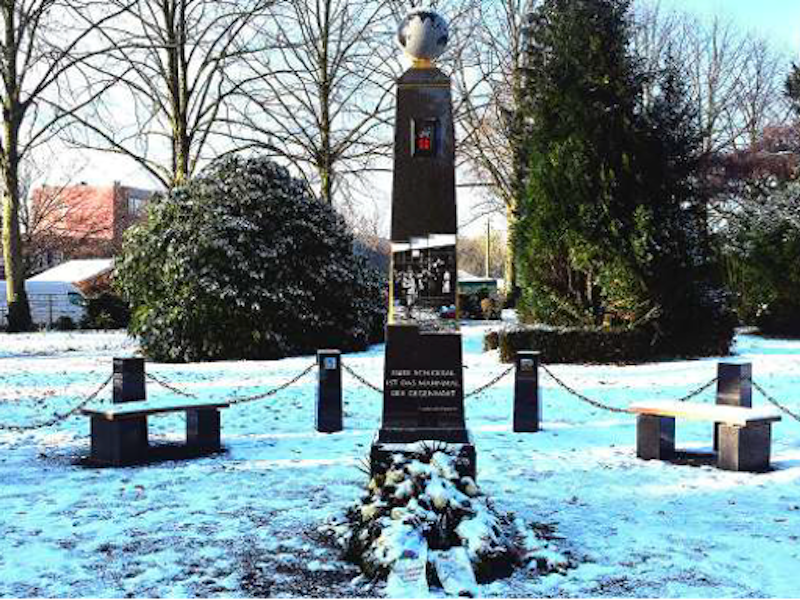Remembering the Porajmos
Mapping Roma Holocaust Memorials Across Europe
Submitted by SÁRI SZILÁGYI and NOELIA BARBERO with academic mentor MARTON ROVID
Central European University

PROJECT TEAM
SÁRI SZILÁGYI is Hungarian and of Jewish heritage. Sári holds an MA in Developmental and Clinical Child and Adolescent Psychology (Eotvos Lorand University, Budapest). She is currently an MA student in the Critical Gender Studies program at the Central European University, also enrolled in the Romani Studies Avanced Certificate program. Sári also works as psychological counsellor at Younus Mentoring, an Austrian NGO connecting disadvantaged children with volunteer mentors.
NOELIA BARBERO (Argentinian) has a background in Social Anthropology (University of Buenos Aires) and Global Humanities (Sapienza University). Currently an MA student in Sociology and Social Anthropology, pursuing a Romani Studies Advanced Certificate. Her thesis looks at Artivism in the queer(y)ing of Romani Theatre in Bucharest. Noelia also works as a Human Resources Manager at a Dutch NGO in the Movement Lawyering sector, specializing in policy development and DEI initiatives.
MARTON ROVID is visiting professor at the Romani Studies Program at Central European University. His research interests include racialization in post-communist contexts, theories of cosmopolitan democracy, global civil society, transnational social movements, and the Romani movement. He published several peer reviewed articles, book chapters, and policy papers. He has been teaching in various programs targeting students with limited opportunities for participating in higher education, such as the Roma Graduate Preparatory Program, the Jesuit Roma College, the Open Learning Initiative for persons with refugee or asylum seeker status, and the Socrates Project for persons who lacked educational opportunities in the past. In addition to research and teaching, he has been involved in policy research. As a research and advocacy officer of the Decade of Roma Inclusion Secretariat Foundation, he coordinated the monitoring of Roma policies in 16 countries. He also worked for the EU Agency for Fundamental Rights. He is the managing editor of the journal Critical Romani Studies.
EXECUTIVE SUMMARY:
Remembering the Porajmos! is a student-led, voluntary project by two MA students from Argentina and Hungary. The project was completed as the final assignment for the course ‘Race, Justice, Solidarity: Addressing Anti-Roma Racism in Contemporary Europe’ (Dr. Márton Rövid, CEU, Spring 2025, Vienna). The project provides a grassroots, transnational mapping and critical analysis of Roma Holocaust (Porajmos) memorials across Austria, Germany, Hungary, Poland, and Slovakia, resulting in a booklet. Its unique contributions include highlighting the uneven distribution of memorials, showing how commemoration is largely driven by local and small-scale initiatives, and revealing cross-community collaboration, particularly with Jewish communities. Short peer interviews (N=9) indicate that the Porajmos is rarely addressed in formal education. The project also critically engages with terminology, noting that while “Roma Holocaust” is widely recognized, it does not fully capture the specific racialized violence against Roma and Sinti.
Developed collaboratively with an equal division of tasks –including archival research, field reflections, mapping, and peer interviews – the project was entirely voluntary and conducted outside any funded program. Both students bring grassroots and academic commitments to issues of justice, memory, and minority rights. The project aims to expand its mapping, support Romani-led remembrance initiatives, and contribute to educational programs that embed the Roma Holocaust in broader memory work, translating commemoration into rights, awareness, and public recognition. The booklet serves as a resource for educators, researchers, and activists. The project’s long-term goal is to map Porajmos memorials across all of Europe and create an interactive platform where information about all sites can be accessed.
Report.pdf to found here

